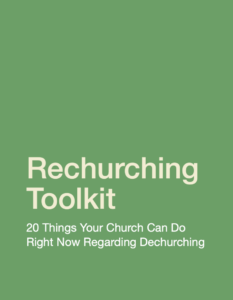Before we had kids, my husband and I assumed our children would go to public schools just as we had. In the places we grew up, nearly everyone—even in our churches—went to public school. But by the time our oldest son was nearing kindergarten, how to educate your children had become a hot topic in Christian circles.
At the time, our church had three pastors. One sent his children to public school, one sent his to private Christian school, and the third pastor’s children were homeschooled. It was clear to us that education is an area of Christian freedom, but it wasn’t clear to us what we should do.
What We’ve Tried
We searched the Scriptures, we prayed about it, we read books like Perspectives on Your Child’s Education, and we talked to older parents in our church who chose different school options. Did I mention I’m a former teacher and had taught in both public and private Christian schools? Surely my experience would count for something. But at the end of it all, we still didn’t have a clear conviction about how to educate our children.
So we tried to apply wise decision-making principles and decided on a public school for Spanish language immersion. But a couple of years in, COVID hit and everything about our school experience changed. Given some new challenges, we decided to homeschool while we considered our options.
After a wonderful year of homeschooling, we enrolled our two older boys in a private Christian school where their youngest brother will join them next year. Lord willing, our boys will continue there through high school. But if our school journey thus far has taught us anything, it’s that we can research and plan, but the Lord establishes our steps (Prov. 16:9).
What I’ve Learned
I don’t know what our school experience will ultimately look like, but here are a few things I’m learning along the way.
1. School isn’t a right and wrong decision.
As we initially considered school options, we felt pressure to make the “right” decision so our kids would be well-educated and prepared for career success while also making sure the Christian worldview we’re trying to instill wouldn’t be corrupted. Not to mention that kids need healthy opportunities for socialization, access to athletics and the arts, and enough technology integration so they can keep up in the modern workforce but not so much screen time that their brains turn to mush. It seemed if we made the “wrong” decision we would disadvantage our kids for life—both earthly and eternal.
Of course, deciding how to educate our children is a responsibility parents should consider carefully. But we need to remember it’s an area of wisdom and conviction, not of right and wrong. As our family has found by trying nearly everything, there’s no perfect school setting—so we can take the pressure off. God is sovereign over our children’s lives, and he’s working all things for their good, no matter where they go to school. We can ask the Lord to give us wisdom and then make a decision. And if our decision is different from another Christian family’s, it doesn’t mean one of us is right and the other is wrong.
2. School isn’t necessarily a one-and-done decision.
Looking back, part of the reason school choice felt so weighty was that I viewed it as a one-time decision. It seemed that once we set our oldest son on an educational path, the course was charted for all of our children for their entire K–12 education. Certainly, there can be advantages for children to start in one type of school and have consistency all the way through. But that doesn’t have to be the case. The reason school choice is a choice at all is because we have the blessing of multiple options. And, as our family found, there’s flexibility to reassess and make a different choice as you go.
No matter how much we research and plan for school, there are factors that remain unknown. We might find out one of our children has special learning needs that can’t be accommodated in the school we originally selected. Health struggles for a parent or child might mean homeschooling is no longer feasible. Changes in a school’s leadership or educational philosophy may introduce new concerns. So we make the best decision we can at the time and trust the Lord to provide if we need to make a change later on.
3. School isn’t entirely our decision.
As my husband and I navigated our original school decision, we quickly confronted the reality that school choice isn’t entirely up to the parents. Our options may be limited by various factors outside our control. We might like to send our kids to public school, but if the ones in our area are physically unsafe or philosophically unsound, that may not be a viable choice. Or we might prefer private school, but if we can’t afford the tuition or our children aren’t accepted to the school we want, we’ll have to choose another option.
Where we live, the needs of our kids, our financial resources, and our own abilities are all limits on our choice. But that’s not necessarily a bad thing. God has providentially ordained all of these aspects of our lives, and he may use those very limits to guide our decision-making. If we realize the option we want is not available to us, we can receive it as from the Lord and trust his sovereign care.
4. School isn’t a salvation decision.
As Christian parents, school choice isn’t just about setting our kids up to get into a top-tier college or to be well-rounded in extracurriculars. One of our deepest desires is for our children to love and serve the Lord. So we rightly consider how various environments and influences will either support or challenge the biblical worldview we’re trying to pass on to them.
But if we’re not careful, we can assign too much weight to those influences. Each time we’ve reassessed our school choice, I’ve had to remind myself that where we send our boys to school will not determine where they spend eternity. Christian school will not save our kids. Homeschool will not save our kids. Public school will not separate our children from the love of God. “Salvation belongs to the LORD” (Ps. 3:8), and he chose his people before the foundation of the world (Eph. 1:4). He’s saving people from every nation, tribe, tongue—and school. Whether our children walk with the Lord is ultimately about his choice, not ours.
Where we send our kids to school will not determine where they spend eternity.
Our oldest son is nearing the end of third grade, and he’s already attended three different types of schools. Very little about our school journey has gone as we planned. Sometimes I look back and wish we’d chosen the Christian school our boys attend now from the start. But if we had, we would have missed the opportunity to experience the Lord’s kindness and provision for our family through all the twists and turns. We’ve learned a lot by navigating school choice—about education, about our kids, and about the Lord who is sovereign over it all.
20 Things You Can Do Right Now to Prevent Dechurching
 We’re currently experiencing the largest and fastest religious shift in the history of the United States. But there are practical things we can do inside our local churches.
We’re currently experiencing the largest and fastest religious shift in the history of the United States. But there are practical things we can do inside our local churches.
Jim Davis and Michael Graham have commissioned the largest and most comprehensive study of dechurching in America. Informed by their findings, they’ve written a book and developed this corresponding toolkit with resources to help you address the dechurching phenomenon.
We’re delighted to offer you the ‘Rechurching Toolkit’ for FREE today. Click on the link below to get instant access to this resource—worth $100—and be equipped to understand and address the issues behind dechurching.


































